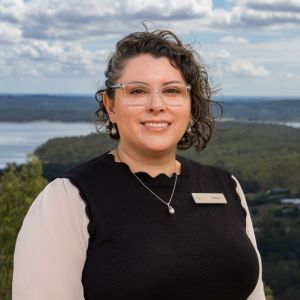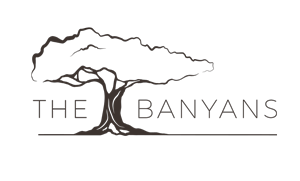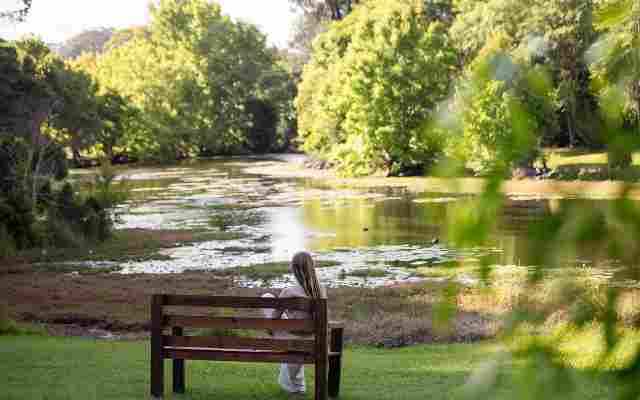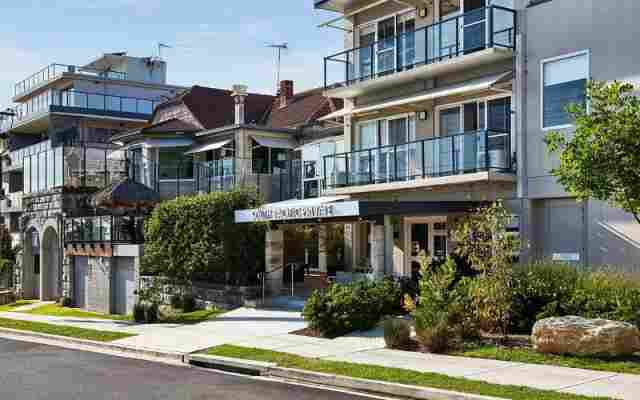
Brisbane, Queensland, Australia
The Banyans
Verified
Verified
This provider’s information has been quality-checked by Recovery.com’s Research Team for accuracy and completeness, including center verification through appropriate third-party organizations.
Estimated Cash Pay Rate
The cost listed here (From $14,000 AUD // $8,750 USD / per week) is an estimate of the cash pay price. Center pricing can vary based on program and length of stay. Contact the center for more information. Recovery.com strives for price transparency so you can make an informed decision.
Highlights from the Center
Highlights
These highlights are provided by and paid for by the center.
Bespoke With Exclusive Staff
Holistic Approach
Utmost Confidentiality
1-on-1 Sessions Only
About The Banyans
The Banyans’ clinical rehabilitation treatment programs offer world-class care for those struggling with mental health, eating disorders, and addiction, boasting a 1:14 guest-to-practitioner ratio. Their holistic medically-supported programs are evidence-based and designed to help guests gain the tools they need to live their fullest life. Uniquely tailored to each guest, the programs vary from Residential to Day Programs to treat depression, stress, burnout, anxiety, trauma, grief, substance addiction, and more. Unlike group therapy models, a client’s privacy and confidentiality can remain intact with exclusive 1:1 therapy. The Banyans’ private, luxury facilities can enable guests to transform their well-being in a secluded, nurturing environment. The Banyans is pet friendly and allows clients to bring pets for an additional fee.
The Banyans’ industry leading medical and health professionals work cohesively to support guests in recovering to their full potential. The Banyans’ multidisciplinary team are fully qualified and experienced experts, underpinning their programs’ renowned clinical reputation. and excellence. Guests are supported in their healing with an integrated team, including a Psychologist, Psychiatrist, Eating Disorder Clinician, Nutritionist, Dietician, Chef, Exercise Physiologist, Yoga Therapist, Equine Therapist, Music Therapist, Art Therapist, as well as nursing and wellness coach staff.
Learn more about their treatment approach.
The Banyans is a proud member of Sana Health Group, a network of mental health and addiction treatment centres committed to patient excellence. As part of our commitment to providing the highest quality care, The Banyans and other Sana Health Group facilities adhere to rigorous national accreditation standards set by the Australian Government's National Safety and Quality Health Service (NSQHS). This accreditation is a requirement of all public and private hospitals country-wide, and our initiative to obtain it demonstrates our dedication to evidence-based practices, clinical governance, and continuous improvement, ensuring exceptional patient outcomes.
Programs Offered by The Banyans
The Banyans programs vary from intensive, comprehensive programs over several weeks to "rest and refresh" programs offering a restorative mini vacation and world-class multidisciplinary day programs. Each program is individually tailored and designed for each client’s circumstances and experience.
Condition dependent, The Banyans' programs can include on-site, non-medical detox services.
Getting to The Banyans
The Banyans offers airport transfers to their various program locations—the Residence (long term programs) nestled in the heart of Brisbane's hinterland, and HealthPlus (day programs) in the innercity suburb of Bowen Hills, or recommended hotels. Guests also have the option to upgrade their travel experience with luxury private jet and executive transfers.
US & UK
Accessing a visa for Australia from the US and UK is typically simple to process. The Banyans can assist guests with a partner travel provider, or a local travel provider will manage this for them.
New Zealand
Travellers from New Zealand need only their passports to enter Australia, with no visa required.
Other Countries
The Banyans can assist with visas by providing a partner travel provider, or a local travel provider will be able to manage this.
Please note: Keep up to date with the latest travel advice in Australia. As of July 6, 2022, international travellers no longer need to show proof of vaccination to enter the country.
Read More
Our Network of Partner Facilities
The Banyans centers their treatment planning and approach around 4 pillars of care: physical, nutritional, psychological, and medical. The qualifications and experience of The Banyans' medical and health professionals underpin their programs' renowned clinical reputation and excellence, with each guest receiving customised, comprehensive and compassionate care featuring functional testing, curated gourmet and nutrition-conscious meals, intensive therapy sessions, and 24/7 medical support. The Banyans uses evidence-based therapies, including the SMART Recovery model and medically supported programs, resulting in a demonstrable, high recovery success rate.
The Banyans integrated team of medical and health professionals work one-on-one with guests for private, focused recovery. With up to seven individual sessions per day and accommodating just 10 guests at a time, each guest receives personalised and compassionate treatment. Clients move from one individual session to the next, usually attending up to 4 or 5 sessions per week day. Afterwards, clients can relax in their rooms and enjoy time with others in treatment.
Understanding the importance of integrating healing with the obligation of daily life, in addition to its comprehensive four week Residential Program, or the mini and restorative "Rest and Refresh" experience, The Banyans also offers an array of condition-tailored Day Programs. Conveniently located close to the city, The Banyans' Health Plus offers flexible access to premium care. The facility features dedicated consultation rooms for 1:1 appointments, a beautiful lounge area complete with a kitchenette and workspaces, an industry-equipped gym, yoga studio, private ensuites with luxurious amenities, and concierge services.
Both The Banyans' Residence and the Day Program facilities are located in the highly sought-after tourist destination of Brisbane, Australia. The Banyans’ Residence, nestled amongst sublime hinterland mountains and lakes, is a destination so unique and outside of everyday lives, it welcomes guests from all over the world. International and interstate guests have the chance to recover in secluded surroundings—a retreat from the stress and triggers of home. Regular off-site recreation and sightseeing around the beautiful sub-tropical, south-east Queensland location allows guests to heal alongside the power of nature. The nuturing Banyans' Day program facility is based in the Bowen Hills Medical Specialist Centre.

Center Overview
Estimated Center Costs
The cost listed here (From $14,000 AUD // $8,750 USD / per week), is an estimate of program cost. Center price can vary based on program and length of stay. Contact the center for more information. Recovery.com strives for price transparency so you can make an informed decision.
Adolescents
Teens receive the treatment they need for mental health disorders and addiction, with the added support of educational and vocational services.
Co-Occurring Disorders
A person with multiple mental health diagnoses, such as addiction and depression, has co-occurring disorders also called dual diagnosis.
Executives
Executive treatment programs typically directly support the needs of people who manage businesses and may provide flexible schedules and office space to allow work during treatment.
Young Adults
Emerging adults ages 18-25 receive treatment catered to the unique challenges of early adulthood, like college, risky behaviors, and vocational struggles.
LGBTQ+
Addiction and mental illnesses in the LGBTQ+ community must be treated with an affirming, safe, and relevant approach, which many centers provide.
Midlife Adults
For adults ages 40+, treatment shifts to focus on the unique challenges, blocks, and risk factors of their age group, and unites peers in a similar community.
Mild Disabilities
Adults with mild physical or intellectual disabilities receive treatment catered to their specific needs in a safe and clinically supportive environment.
Professionals
Busy, high-ranking professionals get the personalized treatment they need with greater accommodations for work, privacy, and outside communication.
Veterans
Patients who completed active military duty receive specialized treatment focused on trauma, grief, loss, and finding a new work-life balance.
Treatment Focus
You can admit to this center with a primary substance use disorder or a primary mental health condition. You'll receive support each step of the way and individualized care catered to your unique situation and diagnosis.
Treatment
Specializations
Alcohol
Using alcohol as a coping mechanism, or drinking excessively throughout the week, signals an alcohol use disorder.
Anxiety
Anxiety is a common mental health condition that can include excessive worry, panic attacks, physical tension, and increased blood pressure.
Cocaine
Cocaine is a stimulant with euphoric effects. Agitation, muscle ticks, psychosis, and heart issues are common symptoms of cocaine abuse.
Depression
Symptoms of depression may include fatigue, a sense of numbness, and loss of interest in activities. This condition can range from mild to severe.
Drug Addiction
Drug addiction is the excessive and repetitive use of substances, despite harmful consequences to a person's life, health, and relationships.
Eating Disorders
An eating disorder is a long-term pattern of unhealthy behavior relating to food. Most people with eating disorders have a distorted self-image.
Gambling
Excessive, repetitive gambling causes financial and interpersonal problems. This addiction can interfere with work, friendships, and familial relationships.
Treatment Services
Day Treatment
In a PHP, patients live at home but follow an intensive schedule of treatment. Most programs require you to be on-site for about 40 hours per week.
Detox
Detox fully and safely removes toxic substances from the body, allowing the next steps in treatment to begin with a clean slate.
Detox (off-site)
This is often the first step of addiction treatment. For many people, it's dangerous to detox without proper medical support.
Intensive Outpatient Program
In an IOP, patients live at home or a sober living, but attend treatment typically 9-15 hours a week. Most programs include talk therapy, support groups, and other methods.
Licensed Primary Mental Health
Some primary care providers offer mental health diagnosis and treatment. This can prevent patients from developing more serious conditions.
Outpatient
During outpatient rehab, patients attend a structured treatment program while continuing to live at home.
Residential
In a residential rehab program, patients live onsite, with access to daily treatment and 24-hour care. An average stay is 30-90 days.
Retreat
These curated experiences promote physical, mental, and spiritual well-being, and provide a break from the busy pace of daily life.
Approaches
Bio-Medical
A philosophy focusing on the biomechanics behind mental health disorders, using prescribed medications as a supplement to behavioral therapy.
Evidence-Based
A combination of scientifically rooted therapies and treatments make up evidence-based care, defined by their measured and proven results.
Holistic
A non-medicinal, wellness-focused approach that aims to align the mind, body, and spirit for deep and lasting healing.
One-to-One
Patients work with their treatment team members on a 1-on-1 basis, keeping their journey and treatment fully private and personalized.
Therapies
Meditation & Mindfulness
A practiced state of mind that brings patients to the present. It allows them to become fully aware of themselves, their feelings, and the present moment.
Online Therapy
Patients can connect with a therapist via videochat, messaging, email, or phone. Remote therapy makes treatment more accessible.
Mindfulness Therapy
This ancient practice can be mental, emotional, and even spiritual. In meditation, you focus your attention on the present moment without judgement.
Adventure Therapy
This experiential approach uses the physical and emotional challenges of outdoor activities as tools for personal growth.
Aromatherapy
Inhaling or topically applying essential oils can help relieve stress, soothe pains, and relieve emotional distress.
Art Therapy
Visual art invites patients to examine the emotions within their work, focusing on the process of creativity and its gentle therapeutic power.
Equine Therapy
Guided interactions with trained horses, their handler, and a therapist can help patients improve their self-esteem, trust, empathy, and social skills.
Experiential Therapy
With this approach, patients heal by doing. Therapists help patients process difficult emotions to speak, using guided activities like art or dance.
Conditions We Treat
Pornography Addiction
A person with a porn addiction is emotionally dependent on pornography to the point that it interferes with their daily life and relationships.
Grief and Loss
Grief is a natural reaction to loss, but severe grief can interfere with your ability to function. You can get treatment for this condition.
ADHD, ADD
ADHD is a common mental health condition caused by dopamine imbalance. Common symptoms include inattention, hyperactivitiy, and impulsivity.
Anxiety
Anxiety is a common mental health condition that can include excessive worry, panic attacks, physical tension, and increased blood pressure.
Bipolar
This mental health condition is characterized by extreme mood swings between depression, mania, and remission.
Burnout
Burnout entails mental and physical exhaustion, and leads to a severe lack of fulfillment. This condition is often caused by overwork.
Depression
Symptoms of depression may include fatigue, a sense of numbness, and loss of interest in activities. This condition can range from mild to severe.
Eating Disorders
An eating disorder is a long-term pattern of unhealthy behavior relating to food. Most people with eating disorders have a distorted self-image.
Gambling
Excessive, repetitive gambling causes financial and interpersonal problems. This addiction can interfere with work, friendships, and familial relationships.
Obsessive Compulsive Disorder (OCD)
OCD is characterized by intrusive and distressing thoughts that drive repetitive behaviors. This pattern disrupts daily life and relationships.
Substances We Treat
Alcohol
Using alcohol as a coping mechanism, or drinking excessively throughout the week, signals an alcohol use disorder.
Benzodiazepines
Benzodiazepines are prescribed to treat anxiety and sleep issues. They are highly habit forming, and their abuse can cause mood changes and poor judgement.
Chronic Relapse
Consistent relapse occurs repeatedly, after partial recovery from addiction. This condition requires long-term treatment.
Co-Occurring Disorders
A person with multiple mental health diagnoses, such as addiction and depression, has co-occurring disorders also called dual diagnosis.
Cocaine
Cocaine is a stimulant with euphoric effects. Agitation, muscle ticks, psychosis, and heart issues are common symptoms of cocaine abuse.
Drug Addiction
Drug addiction is the excessive and repetitive use of substances, despite harmful consequences to a person's life, health, and relationships.
Methamphetamine
Methamphetamine, or meth, increases energy, agitation, and paranoia. Long-term use can result in severe physical and mental health issues.
Opioids
Opioids produce pain-relief and euphoria, which can lead to addiction. This class of drugs includes prescribed medication and the illegal drug heroin.
Prescription Drugs
It's possible to abuse any drug, even prescribed ones. If you crave a medication, or regularly take it more than directed, you may have an addiction.
Aftercare
Experience
Personal Amenities
Amenities
Special Considerations
Transition Program
Patients in a transition program gradually return to life outside treatment, helping lower chances of relapse and continue care in a less intense setting.
Center Pets
Addiction and mental health facilities with pets allow patients to interact with friendly dogs, cats, horses, and in some cases, even dolphins.
Clients can bring their own pet(s)
For greater comfort and healing, pet-friendly treatment centers welcome dogs and animal companions to stay with their owners while they attend treatment.
Couples program
Using gentle clinical care, therapists guide patients and their partner through guided sessions to address issues and work towards lasting solutions.
Pet Friendly
For greater comfort and healing, pet-friendly treatment centers welcome dogs and animal companions to stay with their owners while they attend treatment.
Executive Program
Addiction and mental health treatment for executives typically involves high discretion, greater technology access, and more private, 1-on-1 care.
Activities
Yoga
Yoga is both a physical and spiritual practice. It includes a flow of movement, breathing techniques, and meditation.
Off-Site Activities
Off-Site Amenities
Professional Staff

Dr. Anja Kriegeskotten
Chief Psychiatrist
MD, FRANZCP, Cert Child and Adolescent Psychology, EAGALA

Dr. Sampath Arvapalli
Psychiatrist
MBBS, MRCPsych, FRANZCP

Marian Cartwright
General Manager / Social Worker
BA(Psych), MSW

Leila Gray
Clinical Lead
BPsych (Hons), MPsych (Clinical)
View More Team Members
Learn more about The Banyans
Testimonial
It's just the fact it's a one-on-one focus, and that made me feel that I wasn't just a number. It's tailored to suit my background and this holistic approach I favoured was exactly what I needed. It gave me the necessary tools to succeed and move forward in mind, body and soul.
Former Guest
Accommodations
Food & Nutrition
Treatment
Value
Pros
- Easy to Work With (2)
- Smooth Transition (2)
- Beautiful Location (5)
- Excellent & Effective Treatment Programming (4)
Anonymous
Anonymous
Anonymous
Toby
James
We love hearing about your treatment experience
Help individuals and families seeking treatment by sharing your first-hand experience with this treatment provider. Review Guidelines.

















































